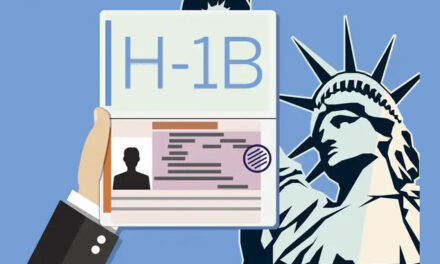
Trump’s Criminal Justice Reform Bill
After years of negotiations, the Trump administration passed a rare bipartisan reform bill to improve the criminal justice system late last week.
President Donald Trump said during the signing ceremony that the legislation is “an incredible success for our country” and that it “will make communities safer, save tremendous taxpayers dollars. It brings much-needed hope to many families during the holiday season.”
The legislation named the First Step Act “gives judges more discretion when sentencing some drug offenders and boosts prisoner rehabilitation efforts. It also reduces the life sentence for some drug offenders with three convictions, or “three strikes,” to 25 years. Another provision would allow about 2,600 federal prisoners sentenced for crack cocaine offenses before August 2010 the opportunity to petition for a reduced penalty,” writes the Associated Press.
The act will reform prison employment and training programs to better prepare prisoners for returning to society. Prisoners that choose to participate in programs with the goal of reducing recidivism can earn credits to use toward an earlier release. But prisoners that have been convicted with multiple serious crimes won’t be eligible to earn these credits.
The bill also requires that prisoners be placed within 500 driving miles from their home. Pregnant prisoners will no longer be retained with chains and women will be given free access to feminine hygiene products.
The life sentence for offenders that have had three convictions has been reduced to 25 years and the minimum sentence for felony drug offenses has been reduced to 15 years from 20.
But the reform doesn’t soften the charges for all prisoners.
“Many advocacy groups wanted the changes easing the severity of mandatory minimum sentences to apply retroactively. That would mean a prisoner sentenced to life in prison under the “three strikes” rule could petition for the 25-year minimum that would be established under the legislation,” writes the Associated Press. “But to get the backing of law enforcement groups, supporters agreed to make the changes apply to future offenders, with the one exception being the prisoners sentenced for crack cocaine offenses before late 2010.”
“I’m human and I would have loved to have benefited from the bill, but unfortunately I don’t,” said Chris Young, a federal prisoner in Lexington, Kentucky to The Guardian.“I don’t necessarily feel left behind, I just feel [lawmakers] don’t understand what goes on with the … actual humans that their choices and politics affect.”
However, many believe the bill could lead to more reform on the state and local level.
Kevin Ring, the president of Families against Mandatory Minimums that lobbied for this reform said that its “a small first step, but it is finally a step in the right direction.”
“This victory truly belongs to the thousands of people who, like me, have been personally impacted by incarceration and have dedicated their lives to improving the system,” said Jessica Jackson-Sloan, national director and co-founder of #cut50, a reform group that sponsored the bill. “This bill was informed by their experiences. Their stories helped win over the president’s support.”



























Luckily my prison knowledge is limited, but I believe prison reform needs to start within the prison. The prisoners need to be safe100% of the time. Rape – both by men and women – needs to be eliminated. Drugs and alcohol need to be removed completely. They need tight schedules and jobs that produce for themselves and for America. They need exercise times and relaxation – again all in safety. They need access to religions or mindfulness that support American beliefs – not devil worship or religions that support sex with minors. Letting people go early without valid reform is not a good plan.
1) A relative was in and out of jail or prison often and loved it in. He said drugs and alcohol were more available inside than out. They played games all day. 2) Honored psychological places will not take on people whom do not set a schedule first- it’s that important to recovery. 3) Work for the able is a valuable character building undertaking. 4) Safety is primary both inside and outside. Look at Maslow’s Triangle. 5) Religion or some form of mindfulness, e.g. yoga and meditation, are important as part of building character and support systems. Reform the inside to keep us safe on the outside.
Part of the internal reform should include a GED or graduating high school. Perhaps a trade or an associates degree would be nice. And they should learn English, if they don’t already know it. Education is a self-esteem builder.
First prosecution under New York SAFE Act overturned